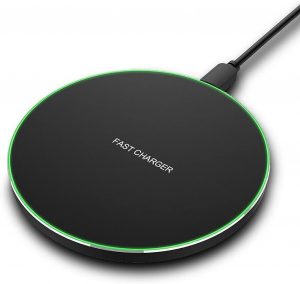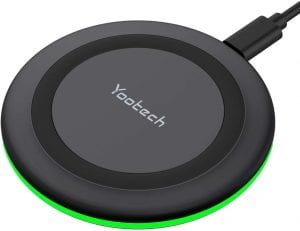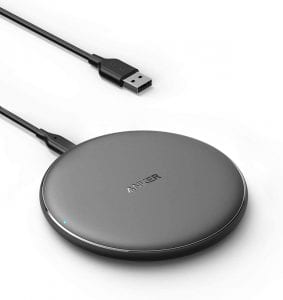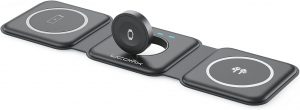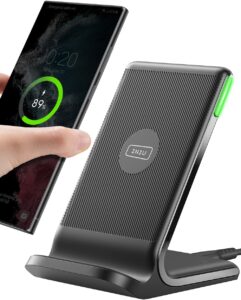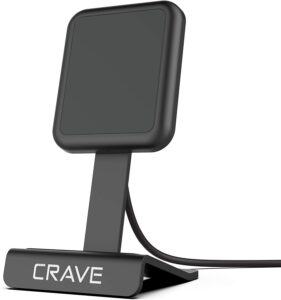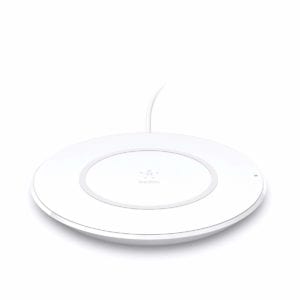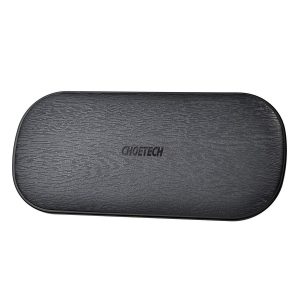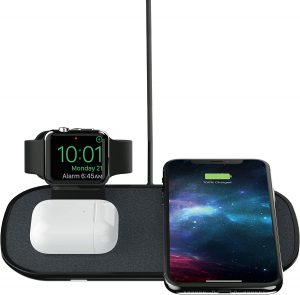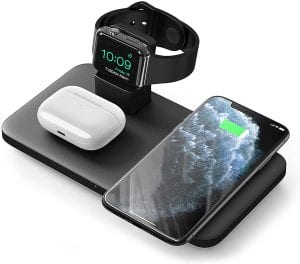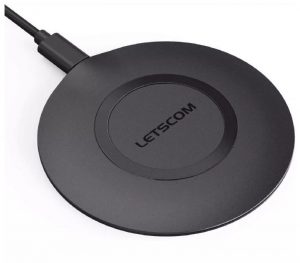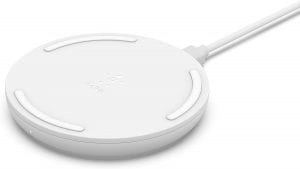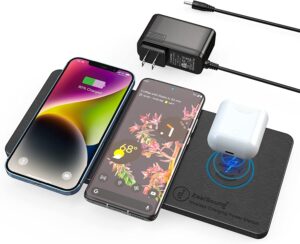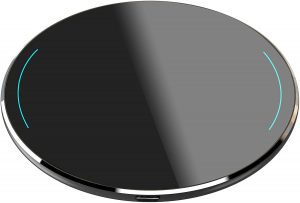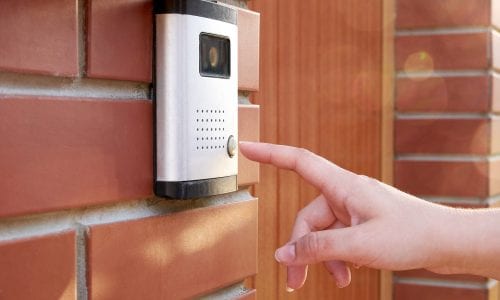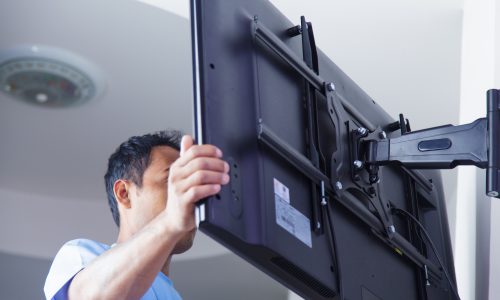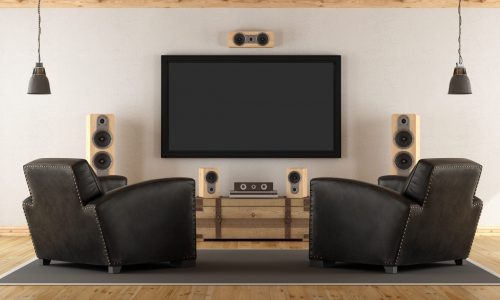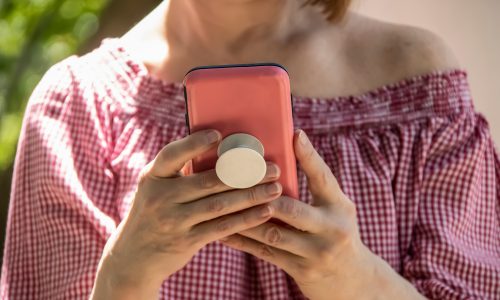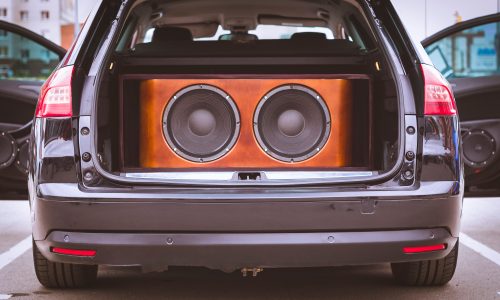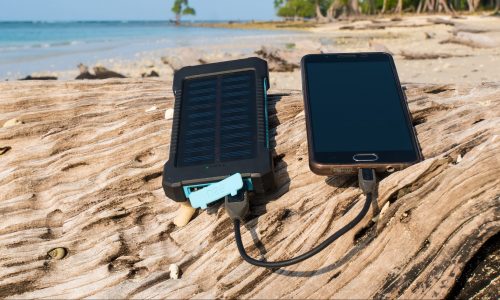The Best Wireless Charging Pad
We looked at the top 14 Wireless Charging Pads and dug through the reviews from 21 of the most popular review sites including and more. The result is a ranking of the best Wireless Charging Pads.
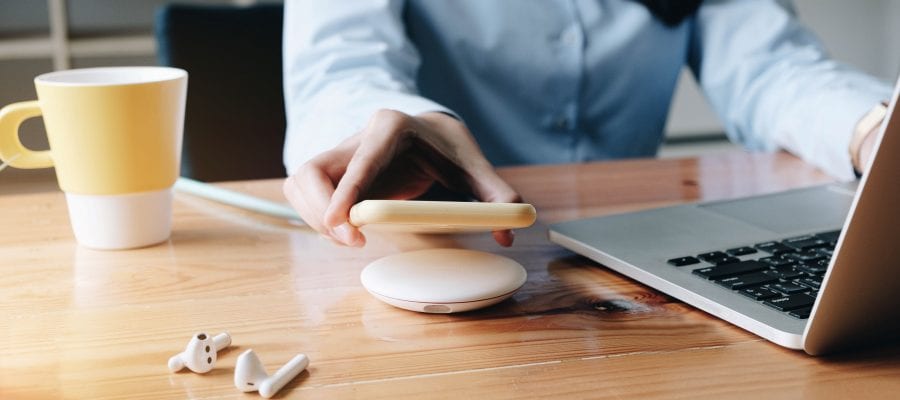
Our Review Process
Don't Waste Your Money is focused on helping you make the best purchasing decision. Our team of experts spends hundreds of hours analyzing, testing, and researching products so you don't have to. Learn more.
Our Picks For The Top Wireless Charging Pads
- 1. FDGAO Anti-Slip Copper Coils Wireless Charging Pad
- 2. Yootech Qi-Certified 10W Max Wireless Charging Pad
- 3. Anker PowerWave Pad Qi-Certified 10W Max Wireless Charging Pad
- 4. UCOMX Foldable Time Saving Wireless Charging Pad
- 5. INIU Certified Super-Conductor USB Wireless Charging Pad
- 6. Crave Universal Non-Slip Stand Wireless Charging Pad
- 7. Belkin Boost Up Wireless Charging Pad
- 8. CHOETECH Over-Current Protection Charging Pad
- 9. mophie One-Stop Cable-Free Charging Pad
- 10. Seneo Case Friendly High Efficiency Charging Pad
- 11. LETSCOM High Speed Ultra Thin Charging Pad
- 12. Belkin Lightweight Clutter-Free Charging Pad
- 13. ZealSound Qi-Certified Multiple Device Wireless Charging Pad
- 14. TOZO W1 Aviation Anti-Slip Slim Wireless Charging Pad
This sleek wireless charging pad is compatible with many Apple and Samsung devices. Not only is it lightweight and faster than other models, but it also works while your device remains inside its protective case. You can even get the pad with a black, fabric or mirror top.
Budget-Friendly PickYou'll love the affordable price tag on this top-notch wireless charging pad.
This wireless charging pad has three charging modes for different phones: 7.5W (iPhone 8, X and 11 models), 10W (Samsung Galaxy Note S8, S9, S10 and others) and 5W, which works on all Qi-enabled phones. The pad is also compatible with AirPods and is equipped with technology that provides temperature control and surge and short-circuit protection.
Efficient DesignThe 0.47-inch thick charger has a rubber ring on the top and bottom to keep devices, including wireless earbuds, in place.
The round pad offers 10W output for select Samsung Galaxy phones, 7.5W output for select iPhones and 5W output for all other Qi-enabled phones. The product, which also works with wireless earbuds, comes with the wireless charging pad and 3.3-foot USB cable.
Through-Case ChargingYou don’t need remove your phone case to use this wireless charging pad, which charges directly through protective cases up to 5mm thick.
Do you have multiple devices you'd like to charge at once? If so, opt for this wireless charging pad. Not only can it handle up to three Apple devices at a time, but it also folds up for easy storage or use as a cellphone holder. You can even configure the device to display your phone vertically or horizontally.
Multiple Color OptionsYou'll find this wireless charging pad is available in nine exciting colors, such as pink, yellow, deep red and orange.
Buying Guide
Wireless charging pads make it possible for you to charge up your smartphone’s battery by placing it on a special surface, eliminating the need for charging cables. To use the pad, all you need is a smartphone that supports wireless charging — or a smartphone case that enables charging if it doesn’t come built in.
Wireless charging pads are available in multiple forms, from mouse pad-like mats to hockey puck-size discs. The devices use electromagnetic induction to transfer energy from the charger to a receiver in the back of the phone. The charger uses an induction or transmitter coil to create an alternating electromagnetic field, which the receiver coil in the phone coverts back to electricity to fuel the battery. To work properly, the charging pad and the phone have to be in close proximity and aligned on top of each other (the specific orientation depends on the type of charger you have).
What does “Qi-certified” mean? Pronounced “chee,” Qi is a wireless charging standard that is currently adopted by most major phone manufacturers, including Samsung and Apple. There are two competing types of wireless charging technologies — magnetic inductive and magnetic resonance — and Qi is an inductive method established in 2010 by the Wireless Power Consortium. It specifies three different power ranges for the chargers and laid out the way that devices would communicate with the charging stations to ensure safety and efficiency.
The introduction of Qi allowed charging station and smartphone manufacturers to acquire tried-and-true components to implement wireless charging without investing in extra research and development to find the best inductive method. Qi’s inductive method is also known to be more energy-efficient than resonant charging methods and requires smaller components, enabling manufacturers to produce more compact wireless chargers. While Android manufacturers began using the Qi standard as early as 2012, Apple didn’t opt in until 2017, when the company released the iPhone 8. Since then, Apple and Android owners have been able to use the same Qi-supported charging hardware.
An advantage to wireless charging pads is the ability to charge multiple devices at once (for example, if you have Apple AirPods and an iPhone). But one major setback to having a Qi-certified inductive charging pad is that it may require a specific alignment and distance to the receiver device, meaning you have to place your phone on the charger in a precise manner or it won’t charge. Resonant chargers tend to be less fussy when it comes to device placement, but some inductive charging stations are equipped with multiple transmitter coils to troubleshoot this issue.
Why we recommend these wireless charging pads?
Products Considered
Products Analyzed
Expert Reviews Included
User Opinions Analyzed
Our experts reviewed the top 14 Wireless Charging Pads and also dug through the reviews from 21 of the most popular review sites including and more. The result is a ranking of the best of the best Wireless Charging Pads.
DWYM is your trusted roduct review source. Our team reviews thousands of product reviews from the trusted top experts and combines them into one easy-to-understand score. Learn more.
The Best Bang For Your Buck
Yootech Qi-Certified 10W Max Wireless Charging Pad
Key Takeawy
This wireless charging pad has three charging modes for different phones: 7.5W (iPhone 8, X and 11 models), 10W (Samsung Galaxy Note S8, S9, S10 and others) and 5W, which works on all Qi-enabled phones. The pad is also compatible with AirPods and is equipped with technology that provides temperature control and surge and short-circuit protection.
What other experts liked
What other experts didn't like
What to Look For
- iPhones models that support wireless charging include iPhone 8 and iPhone 8 Plus, iPhone X, iPhone XR, iPhone XS, iPhone XS Max, iPhone 11, iPhone 11 Pro, iPhone 11 Pro Max, iPhone 12 and iPhone 12 Pro — basically every iPhone introduced since 2017.
- Keep in mind: Users of the iPhone 12 or iPhone 12 Pro can only access the models’ faster charging speeds of 15W if they purchase a MagSafe brand of charger or a MagSafe-compatible third-party accessory. Without MagSafe capability, the phones will still charge but only at 7.5W speeds with a standard Qi wireless charger.
- Android phones that support wireless charging include Samsung Galaxy S10, Galaxy S10+ and Galaxy S10e; Samsung Galaxy Note 9; Samsung Galaxy S9 and Galaxy S9+; LG G8 ThinQ, G8s ThinQ and V50 ThinQ; LG G7 ThinQ and LG V40 ThinQ; Sony Xperia XZ3 and Sony Xperia XZ2; Nokia 9 PureView; Google Pixel 3 and Pixel 3XL; Huawei Mate 20 Pro; Xiaomi Mi 9 and Mi 9 Explorer; Samsung Galaxy S10 5G; and Google Pixel 4a 5G.
- Most phones and some chargers heat up slightly during the charging process since the devices aren’t 100% efficient in absorbing and storing the power they are conducting. It usually isn’t worrisome if your smartphone gets slightly warm, but if it automatically shuts down to prevent heat damage, take it off the wireless charging pad immediately and check the manufacturer’s instructions to troubleshoot the issue.
More to Explore
In the late 1800s, Serbian-American engineer Nikola Tesla invented alternating current-based electricity, which allows electricity to be transmitted through the air via a magnetic field and laid the foundation for wireless charging. Other devices that use the technology include rechargeable toothbrushes, power tools, drones and electric vehicles.

